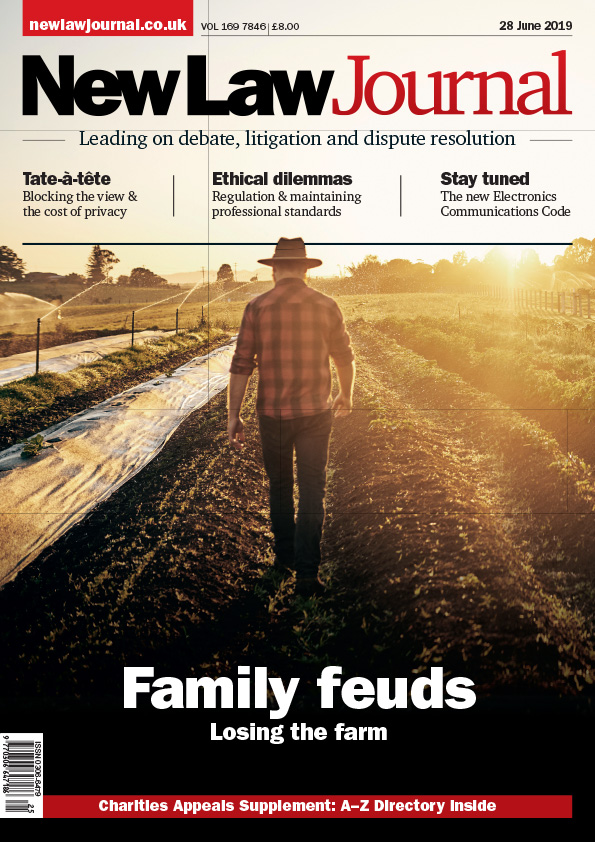
None of us should be surprised by the recurring threat of outside competition, says Roderick Ramage
Is the Tate a public authority? Nicholas Dobson examines a recent ruling on nuisance & nosiness
The new Electronic Communications Code: James Tipler & Paul Letman share seven key takeaways 18 months on from implementation
Jennifer Haywood uncovers some valuable lessons on proprietary estoppel from recent Court of Appeal decisions
Charities should be aware of the risks as well as the benefits when partnering with non-charities, says Bethan Walsh
Mussell v Patience makes it clear that litigation costs principles differ from estate costs principles, as Chris Williams & Henrietta Mason explain
Divorce bill conclusive; lift news; case pipeline; CICB change; appealing odds
Elis Gomer discusses the rise of the DIY will: more trouble than it’s worth?
MOVERS & SHAKERS

Keystone Law—Milena Szuniewicz-Wenzel & Ian Hopkinson
International arbitration team strengthened by double partner hire

Coodes Solicitors—Pam Johns, Rachel Pearce & Bradley Kaine
Firm celebrates trio holding senior regional law society and junior lawyers division roles

Michelman Robinson—Sukhi Kaler
Partner joins commercial and business litigation team in London







